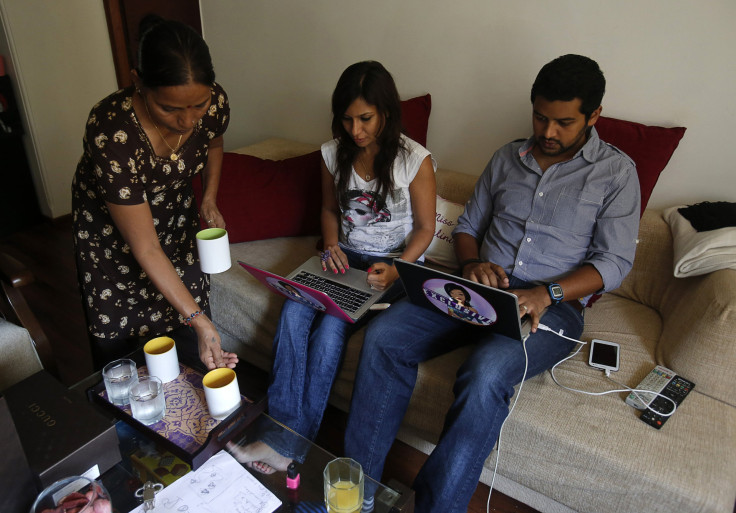Tea Or Coffee: Which Is India’s National Drink?

India has long been associated with tea drinking, but now coffee manufacturers are aggressively asserting their own position in the subcontinent’s beverage marketplace.
According to the Hindustan Times newspaper, India’s tea and coffee manufacturers have staged a bitter rivalry over which liquid is the national drink – but in an effort not to hurt the business of either industry, the government’s ministry of commerce has stayed out of this battle, refusing to promote one over the other.
India’s tea industry, which is based in the rolling hills of Assam and West Bengal in the east, has asked the government in New Delhi to officially recognize tea as the national drink, with the support of the minister for development of the northeastern region, Paban Singh Ghatowar.
But Anand Sharma, the commerce minister, told Ghatowar: "[since tea and coffee are] competing beverages having [their] respective market shares, declaration of one as a national drink is likely to hurt the interest of the other and raise an avoidable controversy."
Tea officials are not dissuaded.
"Did people stop eating bananas or oranges because mango was declared the national fruit?," asked the chairman of The North Eastern Tea Association, Bidyananda Barkakoty.
Meanwhile, coffee makers have been promoting java heavily across the nation – domestic consumption has been rising 5 percent annually, while tea has generated only about 2 percent yearly growth.
Western-style coffee bars have sprouted all over India, as a newly emergent middle class has become enamored with café latte and other such caffeinated delicacies.
Indian coffee is primarily grown (and heavily consumed) in the southern provinces of Kerala, Karnataka and Tamil Nadu.
"There is no doubt that coffee has gained significant popularity across India in the last few decades," a coffee official told the Daily Telegraph.
"Chains like Coffee Cafe Day, Barista and others have a widespread presence in all Indian cities, which makes it evident that people in India like coffee. Coffee has a history and the decision to make coffee or tea the national drink should be left to the people.”
Research firm Euromonitor International estimated that India’s coffee market has grown 80 percent over the past five years, partially reflecting a surge in consumption among the urban middle class and the rising popularity of retail outlets like Starbucks (Nasdaq: SBUX).
“I used to drink tea every day. But, these days, after the arrival of coffee retail outlets, I am going to those places to have a cup of coffee," Jovinson Duarte, a 29-year-old in Mumbai, told the Wall Street Journal.
Roberio Oliveira Silva, head of the London-based International Coffee Organization, explained to the Journal that coffee culture “has taken India by storm and it will continue to do so because of higher incomes and greater urbanization."
But Barkakoty counters that tea is a deep and innate part of Indian culture.
"Tea consumption in north India is more domestic than commercial, while coffee consumption is purely commercial," he said, according to The Telegraph.
"Tea manufacturing and consumption is three times more than that of coffee in India. Tea is of Indian origin and should get the title of India's national drink."
He further explained that tea is an “Indian beverage,” and very much part of Indian culture and indigenous to India.
“The British didn't bring it from outside; the [British] however to some extent commercialized and popularized it in India,” he noted.
“Tea was exported from Assam to London in the 1830s and clearly shows that we had tea before [the British] came to India. The popularity of tea in India can be attributed to its low cost, medicinal values and refreshing experience.”
But on a per capita basis, Indians drink less tea than certain other nations.
According to the nation’s own Tea Board, the average annual per capita consumption of tea is more than 2 kilograms in Britain and Ireland, about 1 kilogram in Sri Lanka and Pakistan, but only 800 grams in India.
But that figure still dwarfs the average 85 grams of coffee that the average Indian consumes annually.
© Copyright IBTimes 2024. All rights reserved.











